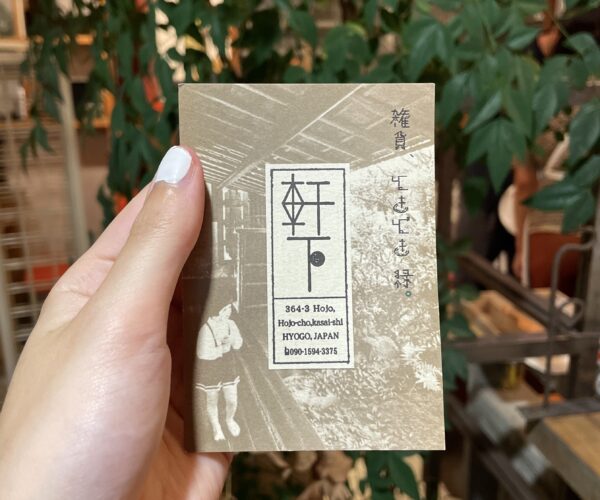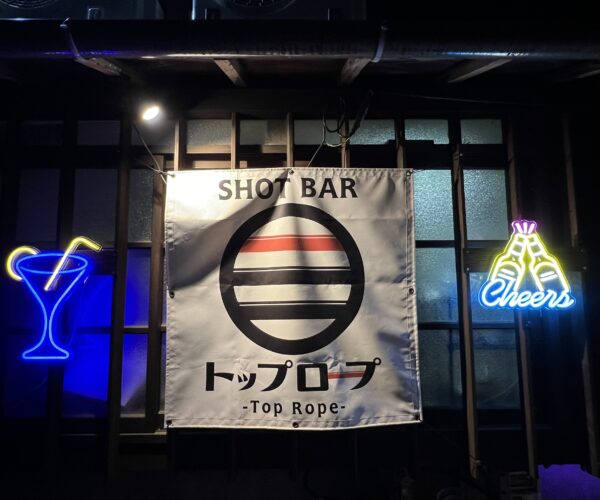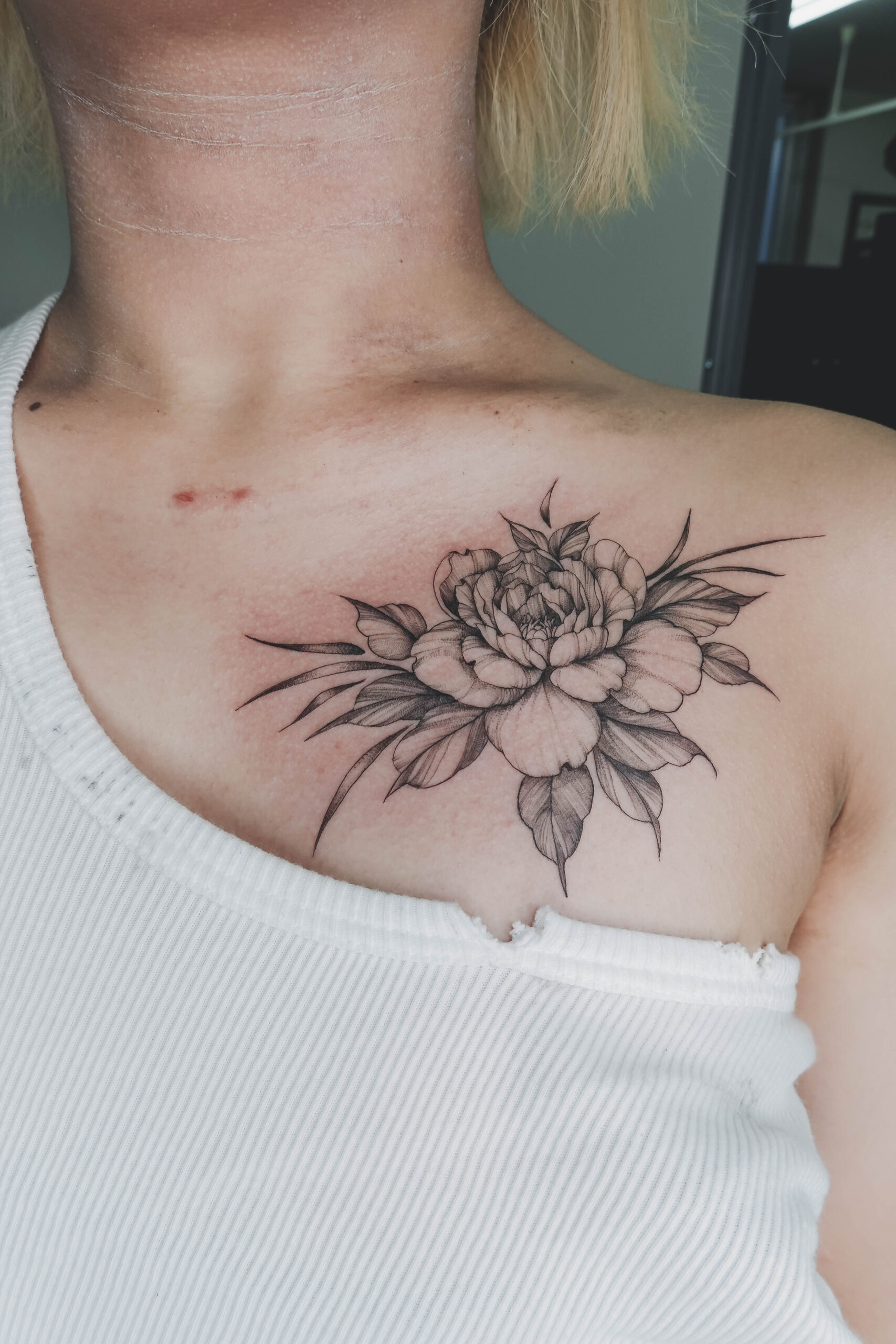Tattooing in Tokyo with Artist Alice Korotaeva
This article was originally featured in the December 2024 issue of Connect.
Sabrina Greene (Chiba Prefecture)
What’s your passion? How far would you go to follow it? Tattoo artists in Japan have long grappled with this very question. Amidst legal restrictions and societal pressures, their efforts have led to surprising outcomes.
Like many tattoo parlors in Tokyo, Yokohama’s Fanatic Tattoo Studio is hidden away on a nondescript street. Located on the 4th floor and only accessible via a narrow elevator or camouflaged set of stairs, the entrance is easy to miss. However, the studio itself is bright and atmospheric, complete with white lights, black pleather couches, and a stack of tattoo magazines in the entryway.
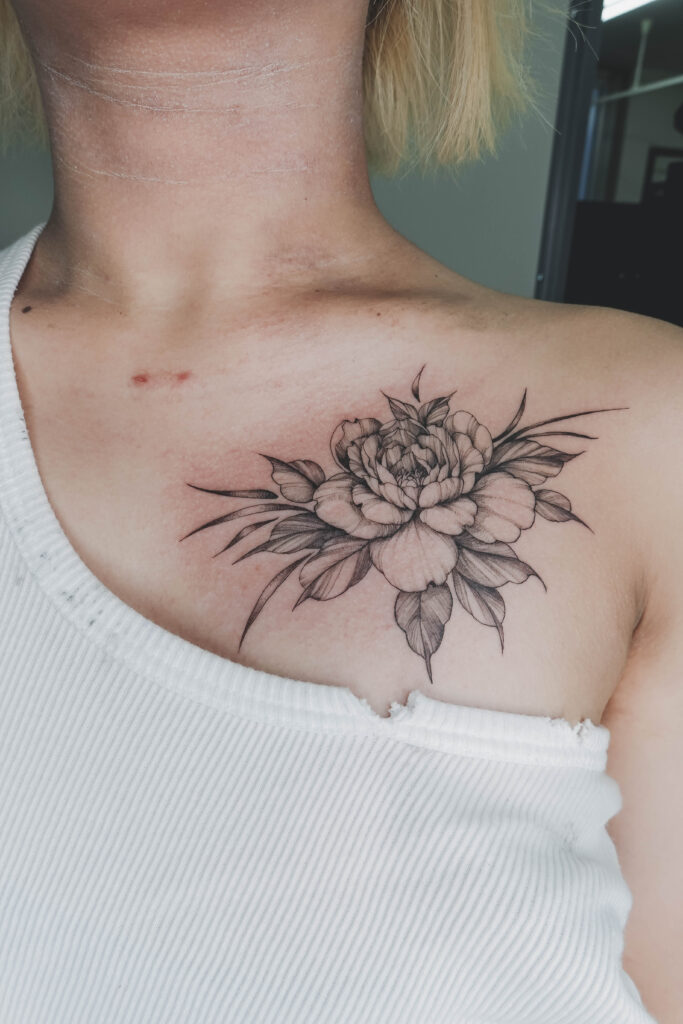
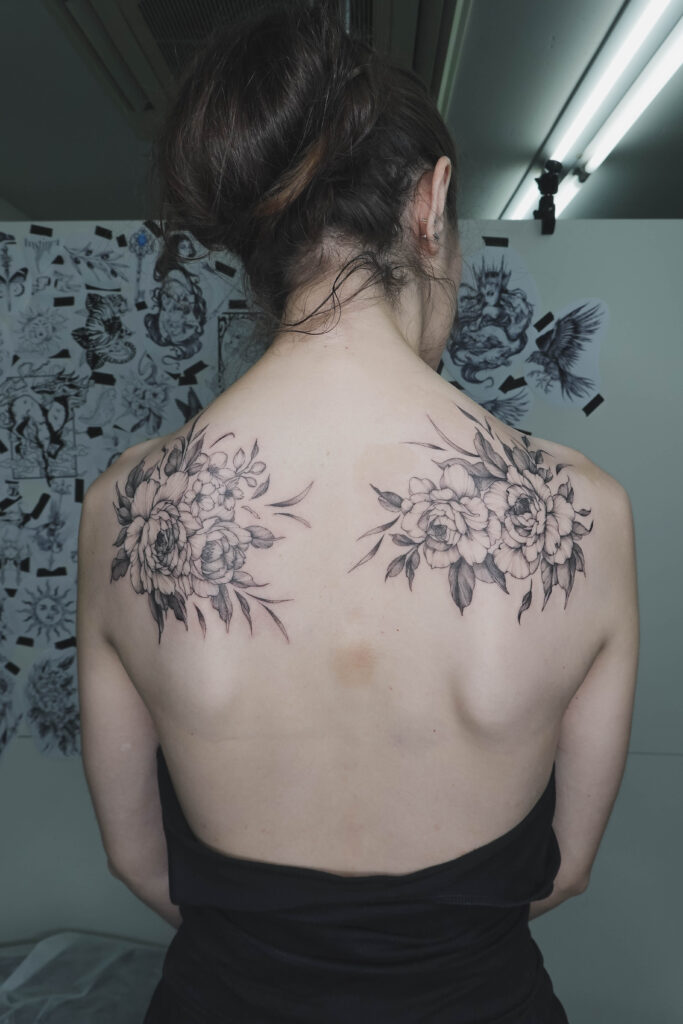
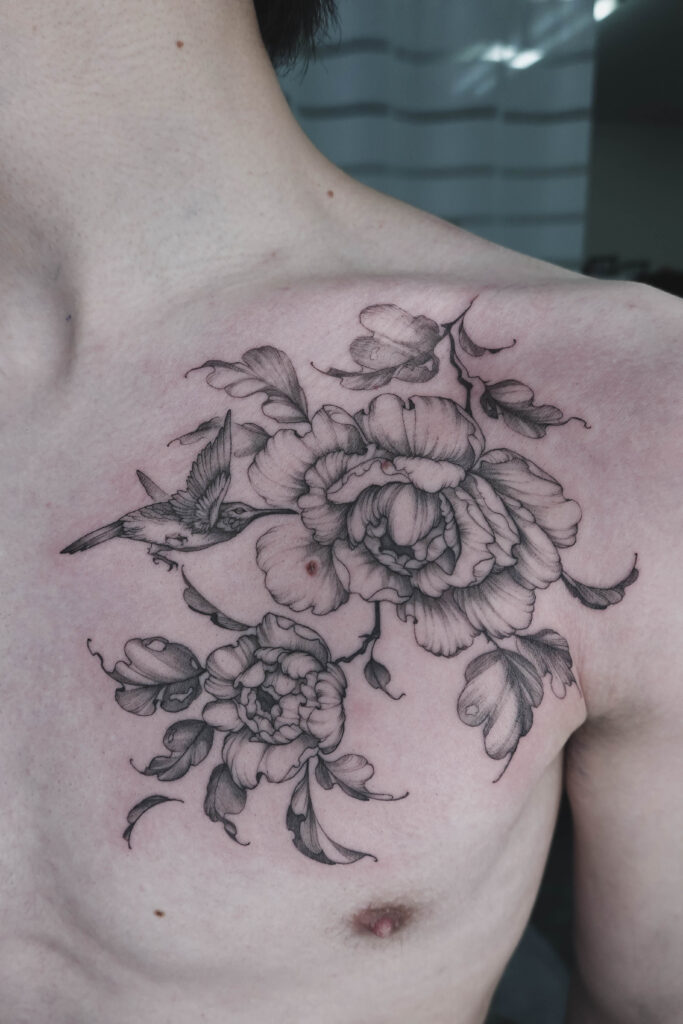
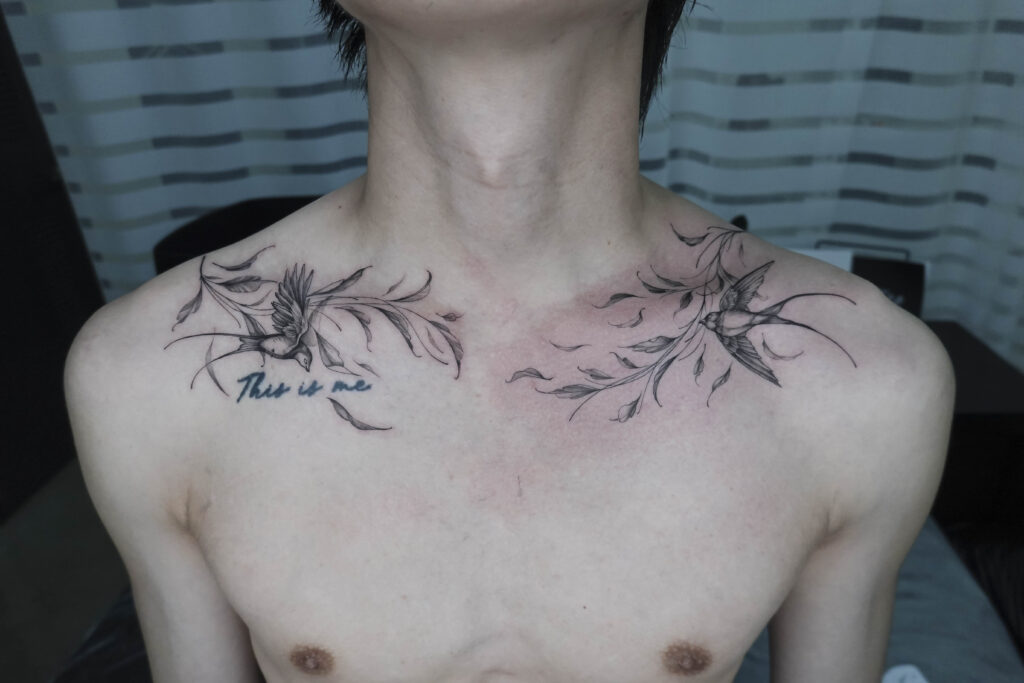
While Tokyo-area tattoo parlors may be secretive, Japan’s disdain for tattoos certainly isn’t. “Before I started, I actually thought, well, maybe being a tattoo artist in Japan won’t work,” admits Alice Korotaeva, one of Fanatic Tattoo’s resident artists. Indeed, a quick Google search yields scores of articles warning inked travelers to cover up. Tattoos have long been associated with criminals and gang activity. In fact, tattooing without a medical license was even illegal in Japan until 2020. (1)
Even so, Japan’s relationship with tattooing isn’t as straightforward as travel websites and news articles suggest. Irezumi, or traditional Japanese tattooing, has been a prevalent practice for centuries. It was first associated with criminality in the 5th century, when tattoos were used as a form of punishment. It was also a popular way to rebel against restrictive Confucian values in the Edo period. Irezumi was banned outright between 1872 and 1948, when national leaders worried tattoos looked uncivilized to Western powers, and it was during this time they became associated with the yakuza, or Japanese mafia. (2) Meanwhile, mainstream Japanese stigma around tattooing also negatively impacted the tattoo culture of indigenous groups like the Ainu and Ryukyuan peoples. (3)
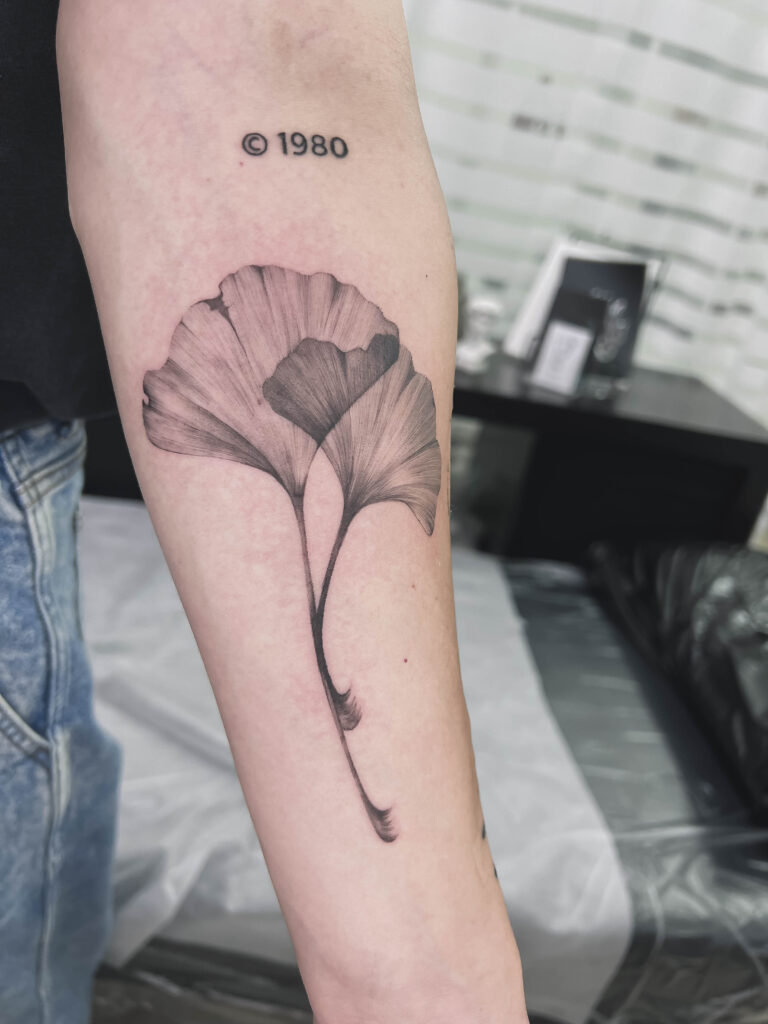
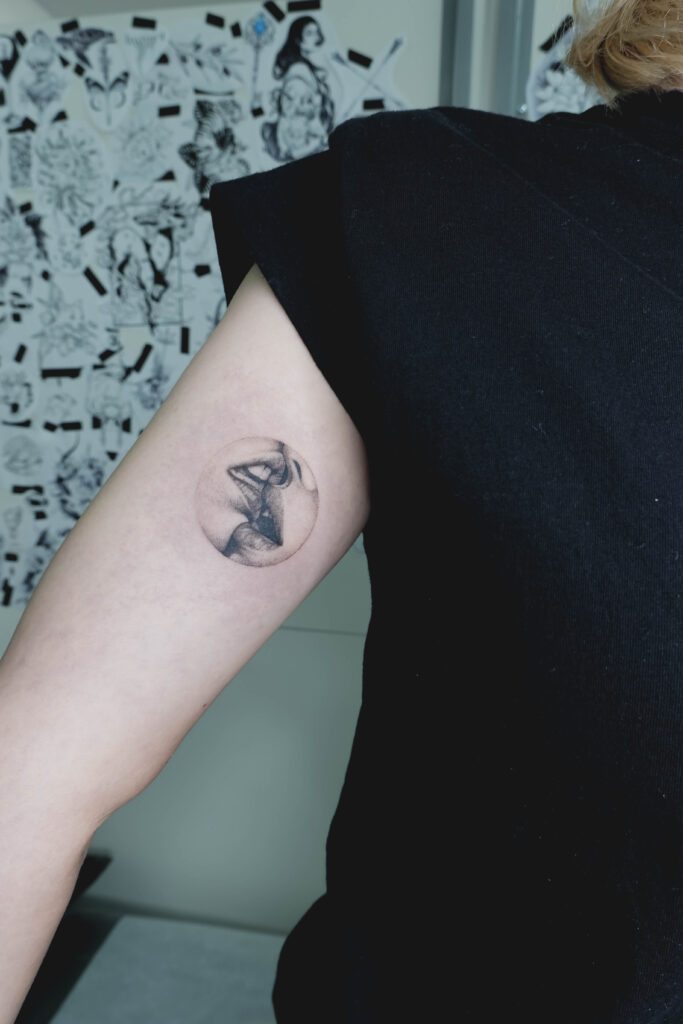
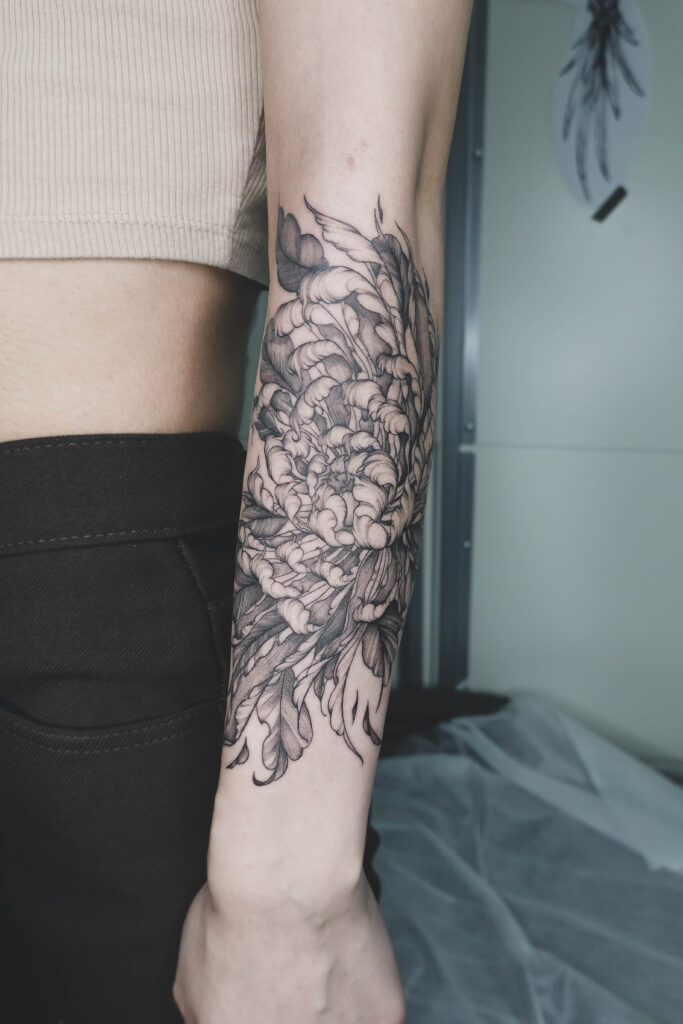

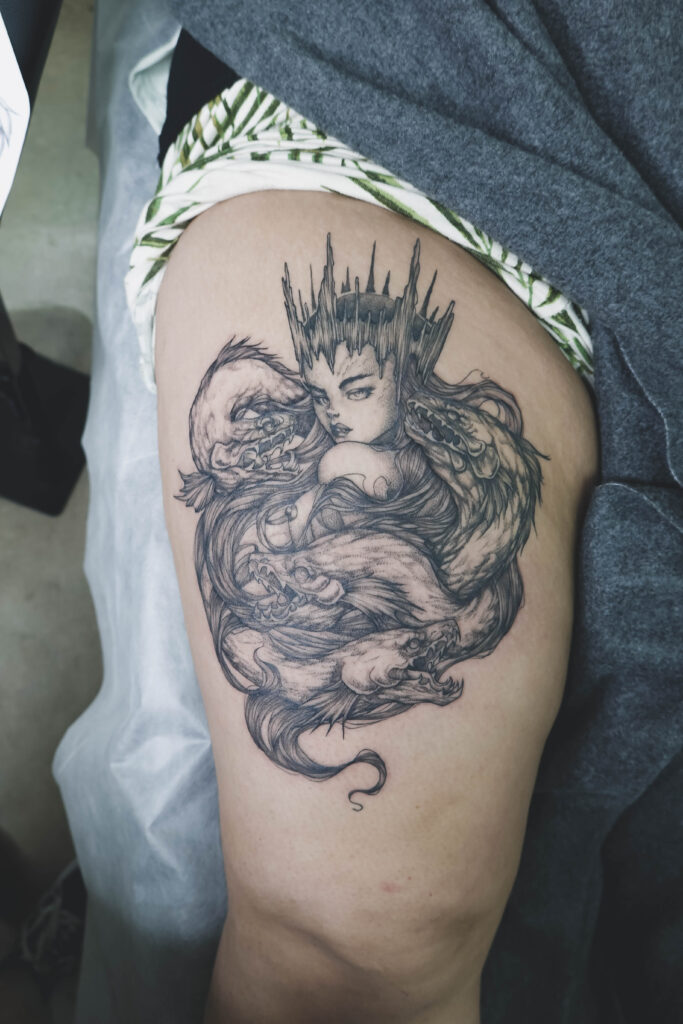
“Irezumi is crazy beautiful,” says Alice. Though her personal style is characterized by delicate lines and gothic imagery, like snakes and skulls which are more popular in the European tattoo scene, her passion for Japanese-style tattoos is obvious. These designs feature muted reds and blues, and also use ukiyo-e imagery that includes demons, dragons, koi fish, and human figures. “When I see the final pieces, like full body, sleeves, chest, or back pieces, I just think it’s criminal to create a stigma about this sort of tattoo. It’s art,” she says. “It’s literally art.”
Artists and clients alike know the price they must pay to ink and be inked. Tattooed people are denied entry into public baths, gyms, and beaches, and hindered in their job prospects. Particularly before the 2020 legalization of non-medical tattooing, they were even subject to police harassment. (1) Despite this, “A lot of people are open-minded about [tattoos],” Alice reports. These days, there are even mainstream tattoo conventions, including an annual one in Tokyo Bay. “More people ask me for big designs, and surprisingly, they’re not foreigners. Japanese people are asking too,” says Alice. Before, clients would stick with smaller designs that are easier to hide under a t-shirt sleeve or a bandage, in accordance with longstanding office workplace rules.
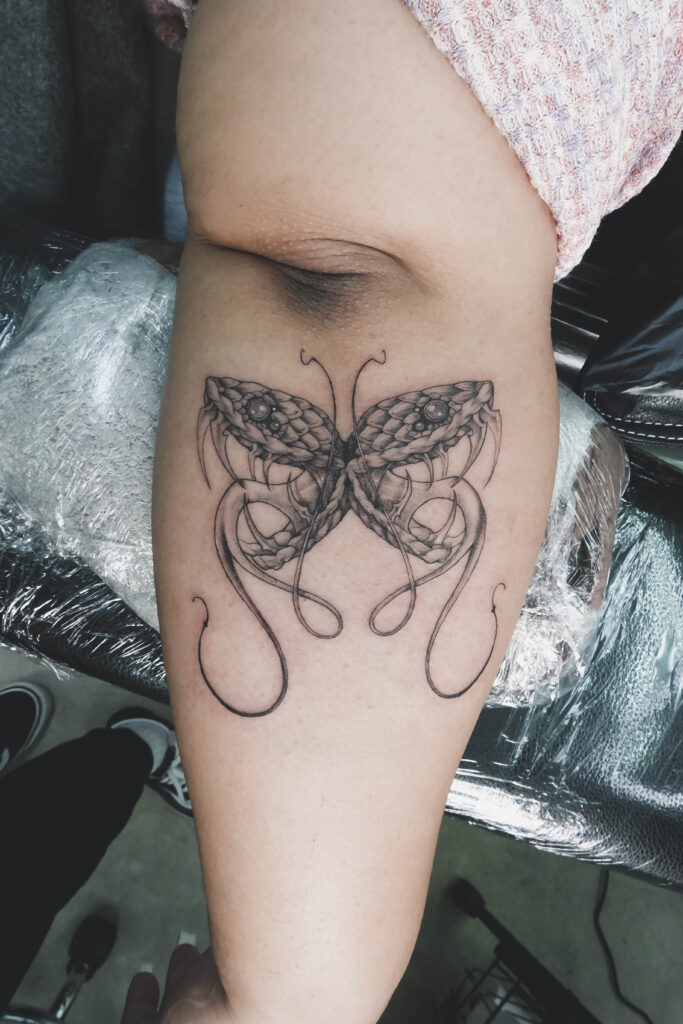
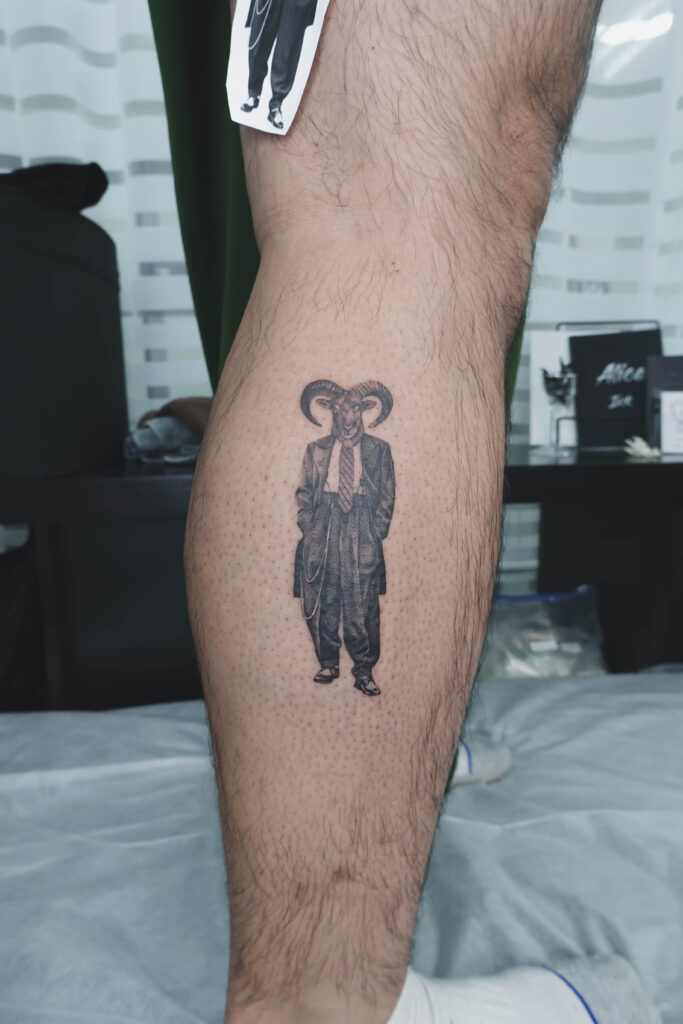
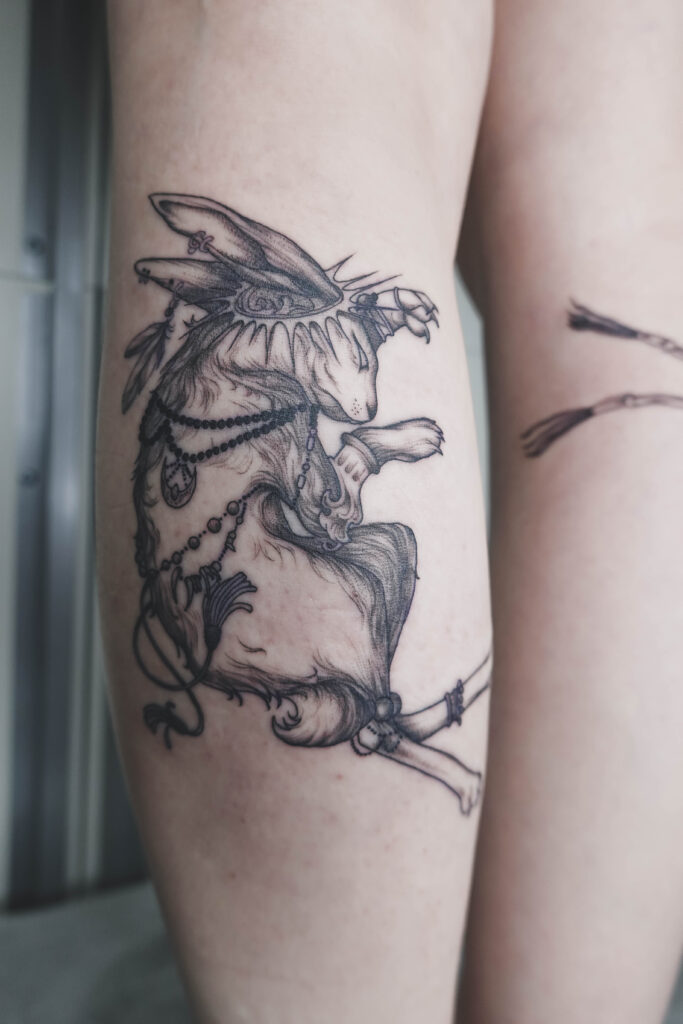
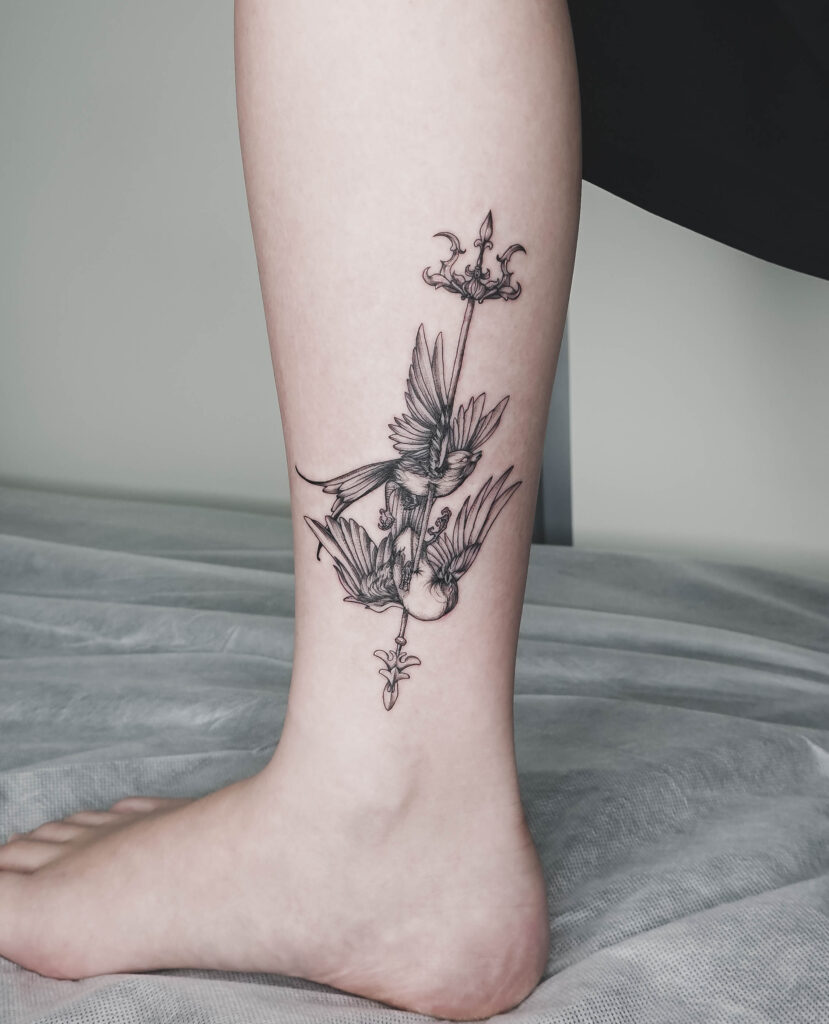
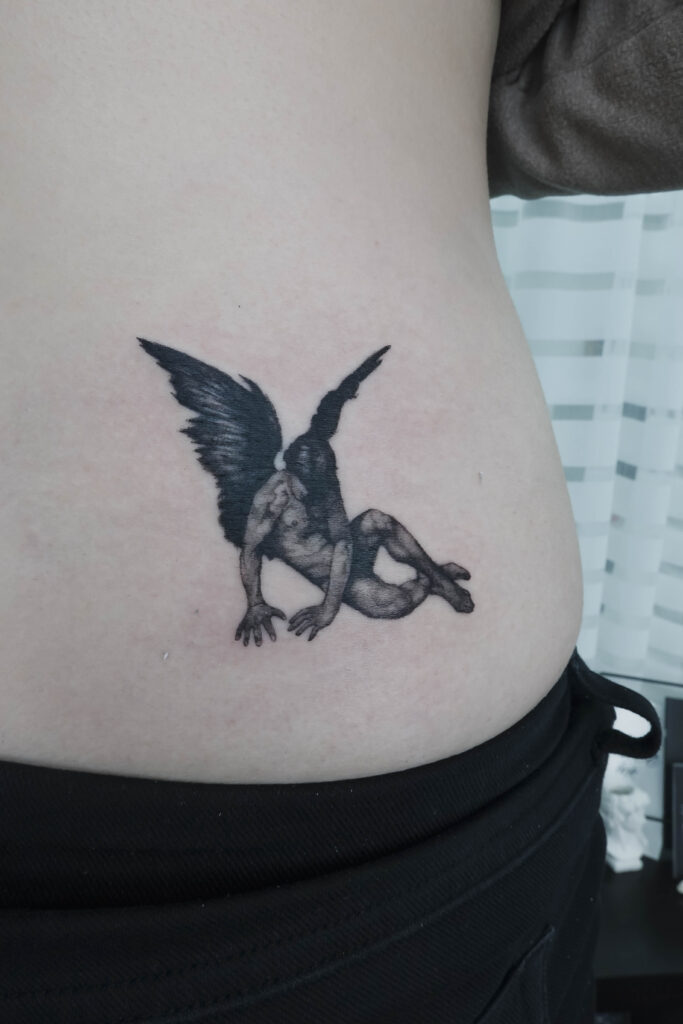
Despite the slowly changing attitudes on tattoos, Alice explains that they still aren’t fully accepted. “Unfortunately, some people are trapped in a prison of their love [for tattoos].” However, it’s possible these very restrictions and taboos have caused a passionate and vibrant tattoo subculture to blossom in Japan. Artists and tattoo enthusiasts are so dedicated to their art form that they’re willing to risk social exclusion to practice it.
Alice wholeheartedly agrees. “The moment I started to put my art into ink, something clicked. Tattooing is something I will never give up, even when it’s very, very hard.” After giving birth to her child last year, she rushed back to the studio before even two months had passed. “Tattooing is such an intimate thing. When somebody allows me to not only touch them but to give them something they will carry with them forever, it means a lot.”
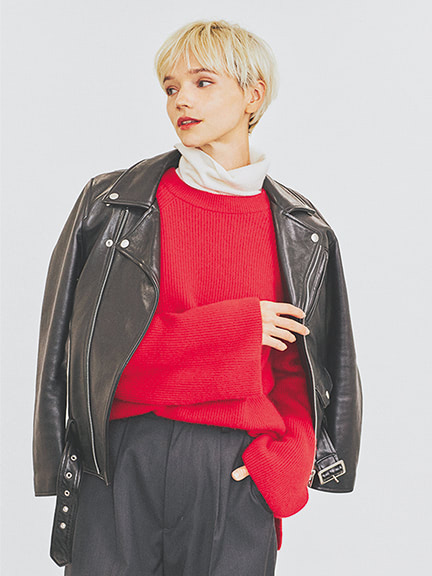
In the future, Alice hopes to see tattoos appreciated for the valuable art form they are. “I think the environment will continue to improve, but it’s going to be slow. It starts from the head: until you change your thinking, nothing much else will change.”
Sabrina Greene is the fashion editor at [CONNECT]. She lives in Chiba Prefecture with a kombucha SCOBY named Pip. She does not have any tattoos, but she finds them inspiring and looks forward to getting one as soon as she completes her list of tattoo-friendly onsen.


